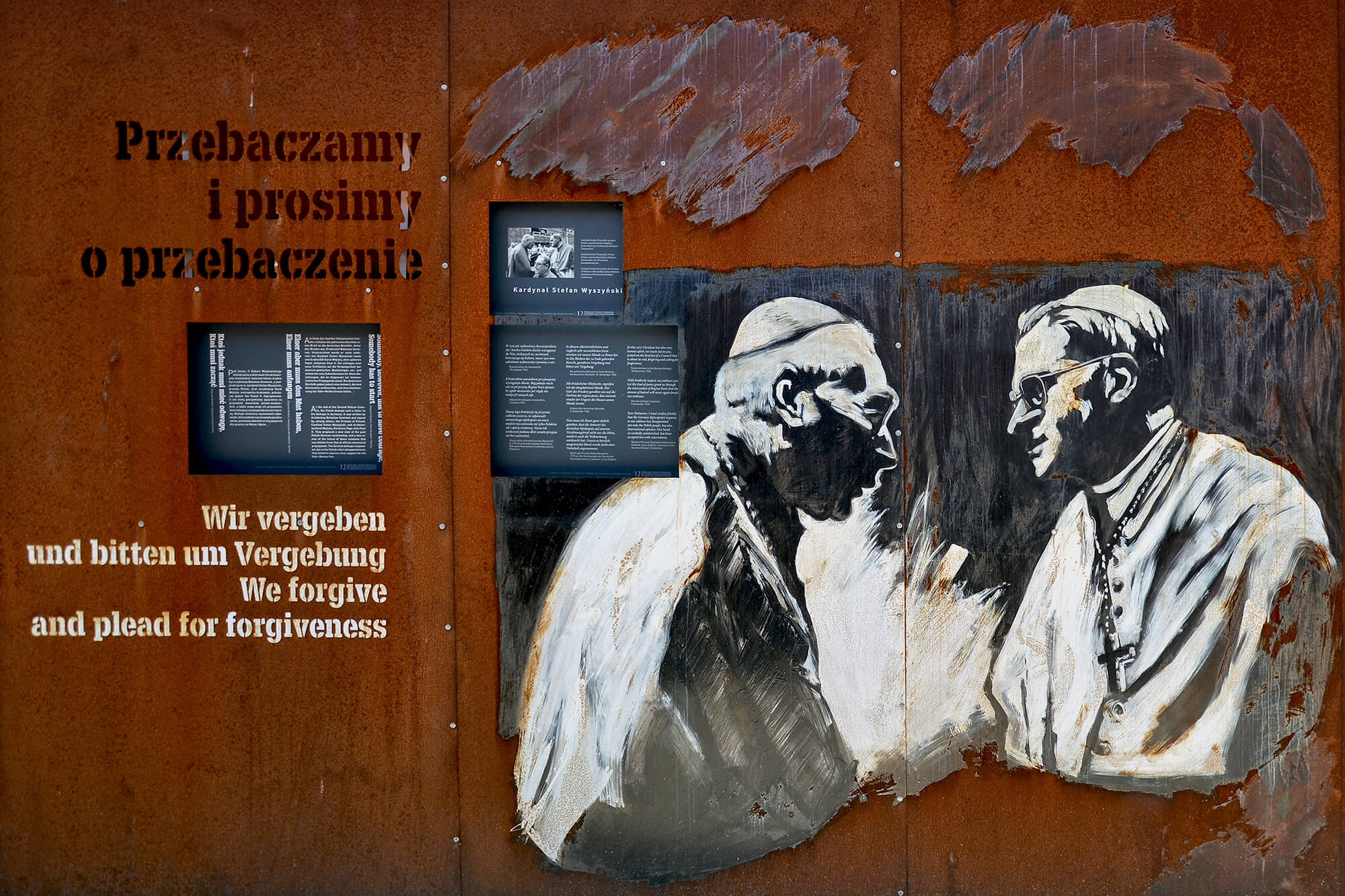Courage and
reconciliation
-
What was the occasion for the letter of the Polish bishops?
From 1962 to 1965 the Second Vatican Council took place. Since the middle of the 16th century this was only the third Council of the Catholic Church. More than 3000 bishops and lay theologians participated in the Council. It was an important event for all Catholics worldwide and was considered as the moment of opening and modernization by many of them.
In 1966, the Poles celebrated the Christianization of Poland with the 1000th anniversary of the baptism of Mieszko I of Poland which is considered of being the beginning of the Polish state. Towards the end of the council, the Polish bishops invited all other bishops to Poland for celebrating their millennium. The letter to the German colleagues had been written more extensively than the others, and not in Polish but in German. It was written in the conviction that the millennium cannot be celebrated without taking the first steps of reconciliation with the Germans. -
Why was the German bishops` reply a disappointment for their Polish colleagues?
In their letter, the Polish bishops emphasized the necessity of the border demarcation along the Oder and Neisse rivers: "For our fatherland [...] it is an existential question." They hoped that their German colleagues would react with understanding. The fact that the German bishops responded cordially to the dialogue offer, but did not take a position concerning the border demarcation, was a bitter disappointment. The German bishops justified their attitude with the fact that they could not anticipate political decisions. They also feared that their parishes would not agree with such a decision.
But also the Polish bishops could not expect the message of reconciliation to be simply accepted by the faithful in the country. Nevertheless, they had decided to take a brave step of "Christian radicalism". -
What was the situation of the Polish Church since the end of World War II?
The war had caused great damage to the Catholic Church in Poland: many churches were destroyed and every fifth priest was killed by the Germans. The new Communist leadership, which was against the Church, hindered the arduous reconstruction in the post-war period. In the former German territories of Poland, the old church structures complicated the reconstruction, because the Vatican refused to adjust the borders of the bishoprics to the new national borders as long as the Oder-Neisse border had not been recognized by West Germany. The fact that the Polish bishops took a big step towards their West German colleagues and signaled their readiness for dialogue, without the formal recognition of the borders, led to a strong criticism of the church by the Communist leadership. A great campaign against the church started, enhanced due to the cautious response of the German bishops. In the end, the Polish bishops had to correct their "request for forgiveness" in a pastoral letter from February 1966, which stated that there is no reason for the Polish people to ask the German people for forgiveness.



